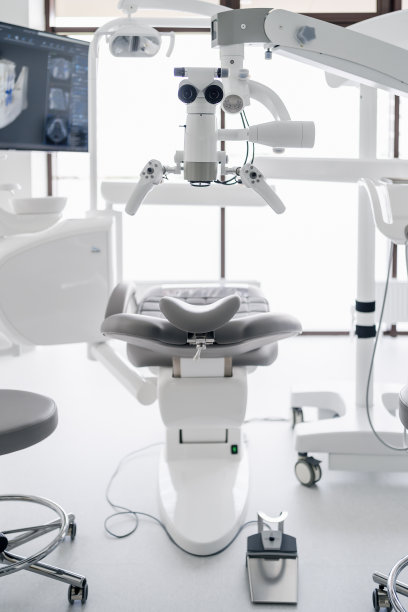Summary: Dental implant treatments are rapidly transforming the field of dentistry, offering long-lasting solutions for individuals suffering from tooth loss. This comprehensive guide delves into the various benefits of dental implants, including improved oral health and enhanced aesthetics, while also emphasizing important considerations such as cost, recovery time, and eligibility. By understanding these factors, patients can make informed decisions about their dental care, leading to healthier and more confident smiles for the future. The transformative power of dental implants lies not only in restoring function but also in improving overall quality of life.
1. Benefits of Dental Implants for Oral Health

Dental implants serve as a robust alternative to dentures and bridges, providing several key benefits that significantly enhance oral health. One of the primary advantages is the preservation of jawbone integrity. When a tooth is lost, the surrounding bone can deteriorate over time, leading to additional tooth loss and changes in facial structure. Implants stimulate the bone, preventing resorption and retaining its density, which is essential for overall oral health.
Furthermore, dental implants help maintain the alignment of adjacent teeth. When a tooth is missing, neighboring teeth may shift into the empty space, resulting in misalignment and bite issues. Implants fill the gap, ensuring that the dental arch remains intact and properly aligned, thereby reducing future dental problems.
Lastly, dental implants do not compromise the health of neighboring teeth. Unlike bridges, which require the alteration of adjacent healthy teeth for support, implants are standalone structures. This means that the integrity of surrounding teeth is preserved, contributing to better long-term oral health.
2. Aesthetic Improvements through Dental Implants
Aesthetics play a crucial role in the decision-making process for dental treatments, and dental implants excel in this area. Designed to closely resemble natural teeth, implants provide a seamless look that integrates with existing teeth, helping patients regain their smiles natural beauty. The materials used in implants, such as titanium, combine with the jawbone and provide a foundation that supports lifelike crowns.
Moreover, dental implants can enhance confidence and self-esteem. Individuals with missing teeth often experience insecurity, which can lead to social withdrawal or reluctance to smile. By restoring the appearance of a full set of teeth, implants empower patients to express themselves freely and engage socially without fear of judgment.
Additionally, dental implants can also improve facial aesthetics. Missing teeth can cause a sunken appearance in the face, which can age an individual prematurely. By restoring lost dental structure, implants help maintain the natural contours of the face, giving a more youthful appearance.
3. Considerations and Costs Associated with Implants
While dental implants offer numerous benefits, there are several considerations that potential patients must be aware of. One of the primary concerns is the cost. Although implants can be more expensive than traditional dentures or bridges, they provide long-term value due to their durability and longevity. Patients should weigh the upfront investment against the cost of replacements and repairs that typically accompany other dental solutions over time.
Another important factor is the recovery period. After the surgical placement of the implant, there is usually a healing phase, which can take several months for the bone to integrate fully with the implant. During this time, patients may need to adjust their diet and oral care routines, which can be a consideration for those with busy lifestyles.
Lastly, not all patients are ideal candidates for dental implants. Factors such as oral health, bone density, and certain medical conditions can affect eligibility. Prospective patients should undergo a thorough evaluation by their dentist to determine the feasibility of implants as a solution for their dental needs.
4. Future of Dental Implants in Modern Dentistry
The future of dental implants looks promising, with ongoing advancements in technology and materials. Innovations such as 3D imaging and computer-aided design are streamlining the planning and placement of implants, resulting in more precise outcomes with shorter recovery times. This technology is making implants more accessible and effective, catering to a wider range of patients.
Additionally, research into newer implant materials is enhancing their performance. Biocompatible materials that promote faster healing and better integration with bone are being explored, which could revolutionize the dental implant experience further.
Moreover, the growing awareness of the importance of oral health is driving more patients to seek dental implants as a viable solution. As awareness increases, the stigma surrounding tooth loss diminishes, leading to greater acceptance and utilization of implant treatments for improving both health and aesthetics.
Summary:
Dental implants represent a transformative advancement in restorative dentistry, offering benefits that extend beyond aesthetics to encompass significant health improvements. By understanding the advantages and addressing potential concerns, individuals can make informed decisions regarding their dental health. As technology progresses, the future looks bright for those seeking reliable and effective solutions to tooth loss.
This article is compiled by Vickong Dental and the content is for reference only.
Vickong Dental
Vickong Dental is a large medical group established in Hong Kong in 2008 by professors from well-known medical universities in Guangdong and Hong Kong, as well as medical doctors from key national '985' universities (including Master's supervisors and senior professors). The chain of branches brings together expert dentists with PhDs and Master's degrees from Hong Kong and Mainland China, committed to providing high-quality dental treatment.
"Vickong Dental Practices the University Motto of 'Healing and Serving Society,' with a Stable Operation for Sixteen Years. It Has Been honored with Hong Kong Enterprise Leaders's Choice,' and is a Global Trusted Implant Center for the Nobel Implant System. Recommended by Hong Kong Metro Broadcast and Guangdong Television, it Serves Customers from Over Thirty Countries and Regions, Gaining the Trust and Favor of Citizens from the Guangdong-Hong Kong-Macau Greater Bay Area and Surrounding Cities.

Thousands of customers' unanimous praise
The most recognized and highly recommended dental service by customers in the Guangdong-Hong Kong-Macau Greater Bay Area
We Ensure You Receive Detailed Care and Attention Here
Hong Kong standards, Shenzhen prices, Your Trusted English-speaking dentists

Vickong Dental Medical-Grade Instrument Disinfection Process
Vickong Dental Medical-Grade Instrument Disinfection Process

Vickong Dental Chain: A Warm and Comfortable Environment for Treatment






Appointment Hours

Q&A
Why choose Vickong Dental?
Vickong Dental practices the university motto 「Medicine to Benefit Society」, with each branch bringing together highly qualified dentists with doctoral and master’s degrees from Hong Kong and the Mainland, and has maintained seventeen years of steady operation。Recipient of 「2024 Hong Kong Enterprise Leaders Brand」, 「2025 Hong Kong Enterprise Leaders Brand」, a Nobel Biocare Global Trusted Implant Center, and a brand recommended by Metro Radio Hong Kong and Guangdong TV。
To date, we have served customers from more than thirty countries and regions,earning exceptionally high word-of-mouth recognition and trusted recommendations from residents across the Guangdong-Hong Kong-Macao Greater Bay Area and surrounding cities
We have eight major branches in Zhuhai、Shenzhen,and a consultation and service assurance center in Hong Kong,so you can book a free consultation at any time for any questions,which is very reassuring.
If I do not accept the quotation after the CT scan, will I be charged??
No! As long as the actual treatment has not started, you will not be charged any fees.
Will there be any additional charges during the treatment process?
No, there won’t be any additional charges. Before treatment begins, we will clearly explain the treatment plan and its corresponding fees. Only after the patient agrees and signs the consent form will we proceed with the dental service.
Can I pay in Hong Kong dollars?
Yes. Vickong Dental accepts payment in Hong Kong dollars. The amount will be converted based on the exchange rate of the day, and the applicable rate will be clearly communicated to you in advance.
Can I reschedule my appointment at any time?
Yes. Please contact us via **WeChat** or **WhatsApp** as early as possible, providing your original appointment time and details, along with your preferred new date and time slot for rescheduling.













